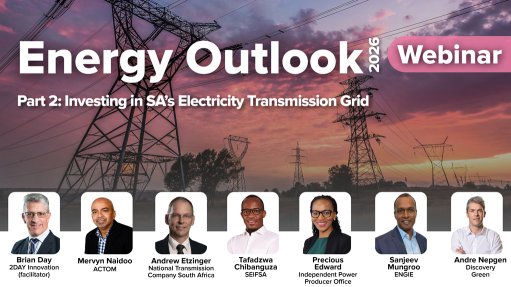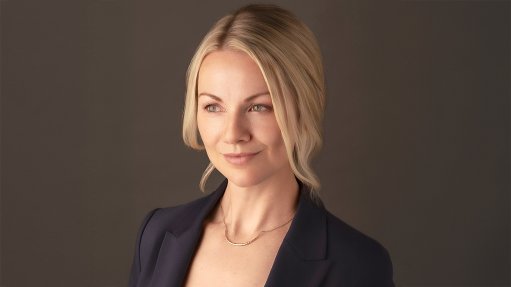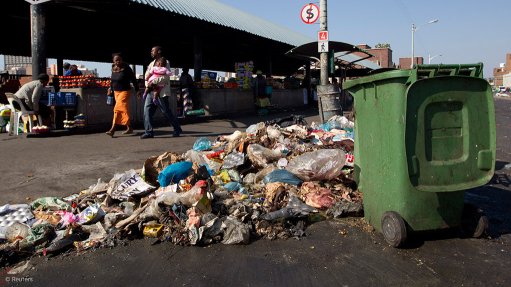Socioeconomic factors worsened by Covid-19 pandemic
Several economy-influencing factors have been heightened by the Covid-19 pandemic, including asymmetry of socioeconomic factors, consumer and business disruption, population age discrepancies, socioeconomic polarisation and a lack of trust in leadership, PwC partner and chief economist Lullu Krugel has said.
She spoke during the Manufacturing Enterprise Solutions Association Africa year-end function on November 17, in which she highlighted the asymmetry, disruption, age, polarisation and trust (Adapt) factor’s findings made by PwC strategy and leadership global leader Blair Sheppard.
Krugel said Sheppard made the Adapt analogy after having heard conversations between people in different settings, such as in airports, lounges and during interactions he had with clients.
“Sheppard started to pick up a couple of key trends in what they were saying,” said Krugel.
In terms of asymmetry, she said the gap between rich and poor was becoming bigger, that more small businesses were failing and that the operating environment for small businesses was becoming increasingly challenging.
Nonetheless, Krugel said small businesses were the area where South Africa had the highest potential to create new jobs.
In this regard, she said it was vital to ensure small businesses made it past the five-year mark, as this was the timeframe from which small businesses would either survive or not.
“When you start talking about small and medium-sized enterprises [SMEs], you tend to focus on the startups and what they need to [do to] achieve [success] . . . [however] we tend to get stuck there,” said Krugel.
She added that more stable businesses also required attention to ensure their continued success and to create scale and transform.
Also falling under the asymmetry banner, Krugel highlighted that sovereign debt and gross domestic product growth issues were a “bit of a mixed bag” in Africa, as there are some markets in Africa that have bounced back since Covid-19 disruptions.
“If you look at Ghana, for example, they did not even go into a recession . . . their economy still grew, significantly. Slower than what was initially anticipated, but it still grew and this year they just bounced back,” she said.
“Countries like South Africa and Nigeria have had a harder time to get our growth back up. [This] has a lot to do with where we were pre-Covid-19 and some of the challenges we are sitting with,” added Krugel.
As for the disruption aspect, she said the strength and influence of big technology platform companies would grow faster as economies continued to recover, boosted further by consumers becoming increasingly socially-conscious.
In terms of the age factor, Krugel noted that, in South Africa’s favour was its mostly young population.
However, she noted that there was pressure on countries with young populations as those countries had fewer workforce opportunities; while for countries with older populations, there was increased pressure on pensions and social welfare systems.
In addition, in developing markets there was pressure in terms of stimulating job creation.
Polarisation was an “interesting” factor she said. This was, “probably the one that took myself and my colleagues by surprise as we missed it six/seven years ago when it started to happen, when there was talk about Brexit for the first time . . . and [US President Donald] Trump being voted in – [we all thought there was] no way that is going to happen,” said Krugel.
“Were we wrong. This just shows that we were completely - as a lot of economists and business people were - out of touch with what people were feeling and the frustration on the ground,” she added.
As for the factor of trust, Krugel said trust in institutions and leadership was falling and was a global phenomenon, driven further by young people becoming disillusioned. This became especially prevalent with young people in the recent South African municipal elections, who expressed their lack of trust in leadership by not voting.
Article Enquiry
Email Article
Save Article
Feedback
To advertise email advertising@creamermedia.co.za or click here
Comments
Press Office
Announcements
What's On
Subscribe to improve your user experience...
Option 1 (equivalent of R125 a month):
Receive a weekly copy of Creamer Media's Engineering News & Mining Weekly magazine
(print copy for those in South Africa and e-magazine for those outside of South Africa)
Receive daily email newsletters
Access to full search results
Access archive of magazine back copies
Access to Projects in Progress
Access to ONE Research Report of your choice in PDF format
Option 2 (equivalent of R375 a month):
All benefits from Option 1
PLUS
Access to Creamer Media's Research Channel Africa for ALL Research Reports, in PDF format, on various industrial and mining sectors
including Electricity; Water; Energy Transition; Hydrogen; Roads, Rail and Ports; Coal; Gold; Platinum; Battery Metals; etc.
Already a subscriber?
Forgotten your password?
Receive weekly copy of Creamer Media's Engineering News & Mining Weekly magazine (print copy for those in South Africa and e-magazine for those outside of South Africa)
➕
Recieve daily email newsletters
➕
Access to full search results
➕
Access archive of magazine back copies
➕
Access to Projects in Progress
➕
Access to ONE Research Report of your choice in PDF format
RESEARCH CHANNEL AFRICA
R4500 (equivalent of R375 a month)
SUBSCRIBEAll benefits from Option 1
➕
Access to Creamer Media's Research Channel Africa for ALL Research Reports on various industrial and mining sectors, in PDF format, including on:
Electricity
➕
Water
➕
Energy Transition
➕
Hydrogen
➕
Roads, Rail and Ports
➕
Coal
➕
Gold
➕
Platinum
➕
Battery Metals
➕
etc.
Receive all benefits from Option 1 or Option 2 delivered to numerous people at your company
➕
Multiple User names and Passwords for simultaneous log-ins
➕
Intranet integration access to all in your organisation


















